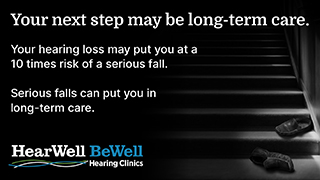Stephen Vance, Editor
 On Tuesday of this week the sentence for a drunk driver who got behind the wheel of his vehicle – killing a grandfather and his three grandchildren – was handed down: ten years. Ten years for ripping the lives away from four of his fellow citizens, and seriously injuring the grandmother and great–grandmother of those three children. Not to mention the life-long damage done to a family that didn’t deserve to have their lives turned upside down because of the irresponsible criminal acts of a selfish individual.
On Tuesday of this week the sentence for a drunk driver who got behind the wheel of his vehicle – killing a grandfather and his three grandchildren – was handed down: ten years. Ten years for ripping the lives away from four of his fellow citizens, and seriously injuring the grandmother and great–grandmother of those three children. Not to mention the life-long damage done to a family that didn’t deserve to have their lives turned upside down because of the irresponsible criminal acts of a selfish individual.
Ten years. It sounds like a long time, but is it enough?
The same day of the sentencing, police forces across the province were issuing press releases informing the public that over the Easter longweekend far too many motorists were charged with impaired driving. Perhaps all of those impaired drivers had missed all of the recent media coverage of the Marco Muzzo case, and all of its horrifyingly sad details.Perhaps all those impaired drivers have missed all of the warnings and attempts to educate drivers over the past several decades.
Given the horror that can result, I’m amazed anyone drives while intoxicated anymore, but one thing we all know is that stupid is everywhere.
It’s almost like people don’t believe it’s a crime. It’s almost like people don’t believe that people can get hurt. It’s almost like people don’t believe there are consequences.
I’m a fan of the spirits myself, but I have no time for drunk drivers. I’ll enjoy my vodka in the comfort of my home, or on a nice sunny deck, but I won’t risk driving afterwards.
My own father, a life-longand dedicated alcoholic, went to prison in the 1990s as a result of ‘getting hammered’ and getting behind the wheel. Fortunately he didn’t kill anyone, but his actions resulted in a single vehicle collision that did very seriously, and forever, injure the passenger in his vehicle – a long-time friend of his. My father deserved every single day he spent in prison, and probably many more given all the times he had gotten behind the wheel in a similar state and had gotten away with it.
When he got out of prison, he moved out west for a fresh start, and he never drove again. When he was dying of cancer a couple of years ago he told me that he’d never driven again because he had a real fear that he would end up killing someone, and he was probably right. I suppose that time in prison taught him a lesson of sorts, though he continued to drink, and heavily at that.
I’m sure that if my father could have taken back the day of the incident that landed him in prison he would have, but that one incident, in my opinion at least, was simply a snapshot of his daily reality, and even if he could have reversed it, it would have no doubt happened another time, perhaps with even worse consequences.
Like Marco Muzzo, my father made a selfish decision, fuelled by alcohol, that put others in danger, and he had to pay the price.
All these years later, what has really changed? It seems like reports of impaired driving are just as common as ever, and attitudes toward drinking and driving don’t seem to have changed sufficiently. Heck, I know people that even to this day think it’s quite alright to crack open a can of beer for the drive home from work – a revolting slap in the face to the law, the police, and to every sober motorist (and pedestrian) on the roads.
So how can we stop this stupidity if decades of public service messaging, thousands upon thousands of drivers’ licence suspensions, and the all too common and horrifying losses of life haven’t convinced motorists to not drink and drive?
Perhaps the minimum sentence for first time offenders isn’t nearly stiff enough – because I’ll tell you, someone with their first impaired driving charge is almost certainly not a first-time drunk driver. Then again, while I would like to think that a two year prison term for a first conviction for impaired driving would act as a deterrent, history (and my gut) tells me it wouldn’t. So is more education the answer? It would seem to me that the education against drinking and driving has been pretty comprehensive and never-ending in my 30 years of driving. More police enforcement? More enforcement would do little if the penalties aren’t reflective of the seriousness of the crime. A public list of those convicted of impaired driving to shame people into abiding by the law? That doesn’t seem to have much of an impact for other types of crimes.
Whatever the answer is, I suspect it will come from everyday citizens and not some government body. Maybe we need to simply talk more openly – and personally – about drinking and driving. Maybe those of us who have had people close to us who drink and drive need to talk more openly about it – both to the offenders, and to those around us – and maybe we need to, on an individual level, significantly lower our tolerance within our own social circles for such a disgusting and selfish activity as is drinking and driving.
If you become intoxicated and then get behind the wheel of a car, if you think it is acceptable to consume alcohol while operating a vehicle, if you have such little concern for your fellow citizens, shame on you.









